Safety Hazards of Oversharing on Social Media
In today's digital age, social media has become an integral part of our lives, allowing us to connect, share, and communicate like never before. However, with great power comes great responsibility, and the **risks associated with oversharing personal information** can be alarming. Whether it's posting your location, sharing intimate details about your life, or even uploading photos that reveal too much, the consequences can be dire. This article explores the various risks associated with oversharing on social media platforms, highlighting the potential dangers to privacy, security, and overall well-being.
When we think about privacy, we often imagine it as a protective bubble surrounding our personal lives. However, **oversharing can burst that bubble** wide open. By revealing too much information on social media, individuals inadvertently compromise their personal boundaries, allowing unauthorized individuals to access their private lives. Imagine walking down the street, and a stranger suddenly knows where you live, what you do for a living, and even your daily routine. This is the reality of oversharing – it invites unwanted attention and potential threats to your safety.
Have you ever shared your birthday, address, or even your pet's name online? While it may seem harmless, sharing too much information can make you a prime target for **identity theft**. Thieves are always on the lookout for personal data that can help them impersonate you and commit fraud. They can piece together information from your social media profiles, making it easier for them to access your bank accounts or apply for credit cards in your name. It's like leaving your front door wide open and inviting criminals in for a cup of coffee!
Phishing scams are another significant risk tied to oversharing. Scammers often target users who share personal information, using that data to craft convincing messages that trick individuals into revealing sensitive information. For instance, if you've posted about a recent vacation, a scammer might send you a message pretending to be a travel company offering a fantastic deal, hoping you'll click on a malicious link. It's crucial to be aware of these tactics to protect yourself.
Identifying phishing attempts is crucial for online safety. Here are some tips to help you recognize suspicious messages:
- Look for poor grammar or spelling mistakes.
- Be cautious of urgent requests for personal information.
- Verify the sender's email address or profile.
- Do not click on links from unknown sources.
By staying vigilant, you can safeguard your personal information and avoid falling victim to these scams.
If you encounter a phishing attempt, knowing how to report it can help protect others. Most social media platforms have options to report suspicious messages or accounts. Take a moment to report these scams; it could save someone else from becoming a victim.
Social engineering is a manipulation tactic that exploits human psychology to gain confidential information. Oversharing makes users easy targets for such tactics. For example, if you frequently post about your favorite coffee shop, a scammer could pose as a barista, striking up a conversation to gain your trust and extract personal details. It's essential to remember that not everyone online has good intentions.
Oversharing can also increase vulnerability to **cyberbullying**. When personal information is readily available, it can be weaponized against individuals, leading to harassment and emotional distress. Imagine sharing a heartfelt post about your struggles, only to have someone twist your words and use them against you. The impact can be devastating, affecting not just your online experience but also your mental health.
The emotional toll of cyberbullying can be severe. Victims often experience anxiety, depression, and a sense of isolation. The constant fear of being targeted can lead to a withdrawal from social media, which ironically was intended to foster connections. It’s like being trapped in a room full of people, yet feeling completely alone. Understanding this impact is crucial for anyone who shares their life online.
Taking steps to protect oneself from cyberbullying is essential. Here are some strategies for maintaining privacy and reducing the risk of becoming a target:
- Adjust your privacy settings to limit who can see your posts.
- Think before you share – ask yourself if the information is truly necessary.
- Consider using pseudonyms or limiting personal details in your profiles.
By being proactive about your online presence, you can enjoy social media without the fear of unwanted attention.
Finally, oversharing can cause significant damage to an individual’s reputation, both personally and professionally. In today’s digital world, employers often check social media profiles before making hiring decisions. Careless sharing can lead to long-term consequences in various aspects of life, including job prospects and personal relationships. It’s like leaving a digital footprint that can follow you around forever, making it essential to think critically about what you post.
Q: What is oversharing on social media?
A: Oversharing refers to the act of sharing excessive personal information on social media platforms, which can lead to privacy breaches and security risks.
Q: How can I protect my privacy on social media?
A: You can protect your privacy by adjusting your privacy settings, being cautious about what you share, and avoiding posting sensitive information.
Q: What should I do if I encounter a phishing scam?
A: Report the scam to the social media platform and do not engage with the suspicious message. Always verify the source before sharing any personal information.
Q: How can oversharing affect my mental health?
A: Oversharing can lead to cyberbullying and emotional distress, impacting your mental health negatively. It's crucial to maintain boundaries and protect your personal space online.

Privacy Invasion
In today's digital age, the line between sharing and oversharing can often become blurred. With the click of a button, we can broadcast our thoughts, feelings, and even our daily activities to a vast audience. While this connectivity has its perks, it also opens the door to significant privacy breaches. When we share too much, we risk inviting unauthorized individuals into our personal lives, which can lead to consequences we never anticipated.
Imagine posting a picture of your new home on social media. You might feel proud and want to show it off, but what if someone with malicious intent takes note of your address? Suddenly, that innocent post becomes a potential invitation for unwanted visitors or even worse. Oversharing can compromise personal boundaries, making it easier for others to invade your privacy. This can manifest in various ways, such as unwanted contact, stalking, or even theft.
Moreover, many people underestimate how much information they reveal through seemingly harmless posts. Sharing your location, for instance, can alert others to your absence from home, making it a prime target for burglary. According to a study, nearly 70% of social media users have shared their location at least once, often without considering the implications. This kind of information can be pieced together to create a detailed profile of your life, which can be exploited by those with ill intentions.
To illustrate this point, let's look at a simple table that showcases some common oversharing behaviors and their potential privacy risks:
| Oversharing Behavior | Potential Risks |
|---|---|
| Posting vacation plans | Home burglary during absence |
| Sharing personal milestones (e.g., birthdays) | Identity theft using personal information |
| Live-streaming events | Real-time location tracking |
| Discussing workplace issues | Damage to professional reputation |
It's essential to recognize that every post, every tweet, and every story contributes to your digital footprint. This footprint can be tracked, analyzed, and even misused. As a result, it's crucial to adopt a more cautious approach to what we share online. Consider asking yourself: "Do I really need to share this?" or "What could happen if I do?" By doing so, you can safeguard your personal information and maintain a healthier boundary between your public and private life.
In conclusion, while social media offers a platform for self-expression and connection, it also comes with significant risks. Oversharing can lead to privacy invasion, and understanding these risks is the first step in protecting yourself. Remember, your privacy is valuable, and it's worth taking the time to guard it fiercely.
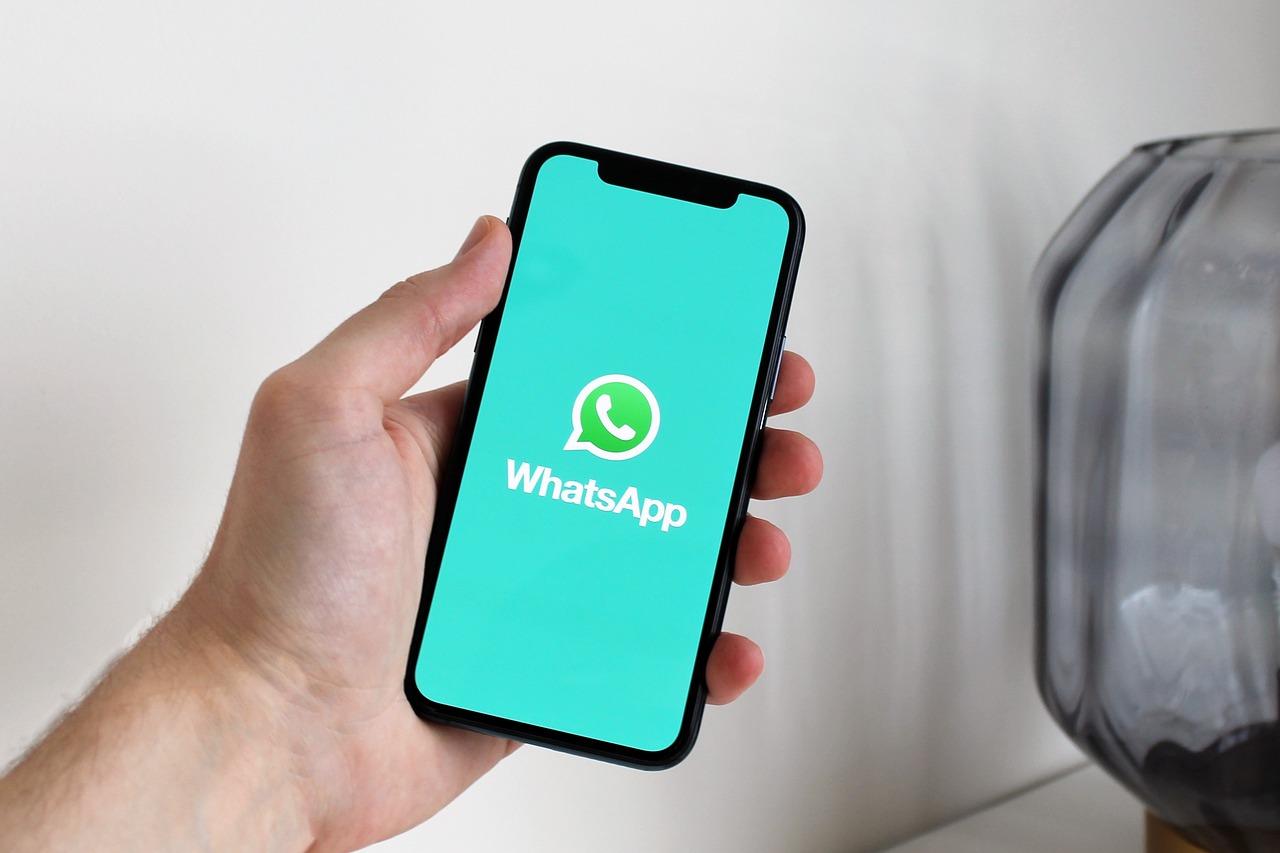
Identity Theft
In our hyper-connected world, where sharing every little detail about our lives has become the norm, the risk of looms larger than ever. Oversharing personal information on social media platforms can open the floodgates for criminals looking to exploit your data. Think about it: when you post your full name, birthday, address, and even the names of your pets, you're handing out a treasure map to thieves who are just waiting to steal your identity. It’s like leaving your front door wide open with a neon sign that says, “Come on in!”
Identity thieves are crafty. They often scour social media for the kind of information that can help them impersonate you. This can include anything from your birthday to your favorite vacation spots. Once they have enough data, they can easily create fake accounts or even apply for loans in your name. This not only results in financial loss but can also lead to a long, arduous process of reclaiming your identity. The emotional toll of such an experience can be overwhelming, leaving victims feeling violated and anxious.
So, how do these thieves operate? They often use a combination of the information you share online and social engineering tactics to gain your trust. For instance, they might craft a message that appears to come from a friend or a trusted source, using the details you've shared to make it seem legitimate. This is where the danger of oversharing becomes painfully clear. The more you share, the easier it is for someone to create a convincing narrative that can trick you into revealing even more sensitive information.
To illustrate the potential risks, consider the following table that outlines common types of information that can lead to identity theft:
| Type of Information | How it Can Be Used |
|---|---|
| Full Name | Used to create fake accounts or impersonate you. |
| Date of Birth | Essential for verifying identity in many services. |
| Home Address | Used for identity verification or to steal mail. |
| Phone Number | Can be used for account recovery or two-factor authentication bypassing. |
| Pet Names | Often used as security questions for accounts. |
As you can see, seemingly harmless details can be leveraged in malicious ways. To protect yourself, it’s crucial to be vigilant about what you share online. Always ask yourself: “Is this information necessary to share?” If the answer is no, then keep it private. Remember, maintaining your privacy is not just about safeguarding your personal details; it’s about preserving your peace of mind.
In conclusion, the risks of identity theft stemming from oversharing on social media are significant and should not be taken lightly. By being mindful of the information you post and taking proactive measures to protect your identity, you can significantly reduce the chances of falling victim to these cybercriminals. Stay aware, stay safe, and keep your personal information close to your chest!
- What is identity theft? Identity theft occurs when someone steals your personal information to impersonate you, typically for financial gain.
- How can I protect myself from identity theft? Be cautious about the information you share online, use strong passwords, and monitor your accounts regularly.
- What should I do if I suspect I've been a victim of identity theft? Report it to your bank, credit card companies, and local authorities immediately.
- Can I recover from identity theft? Yes, while it can be a long process, many individuals successfully reclaim their identity and restore their credit.
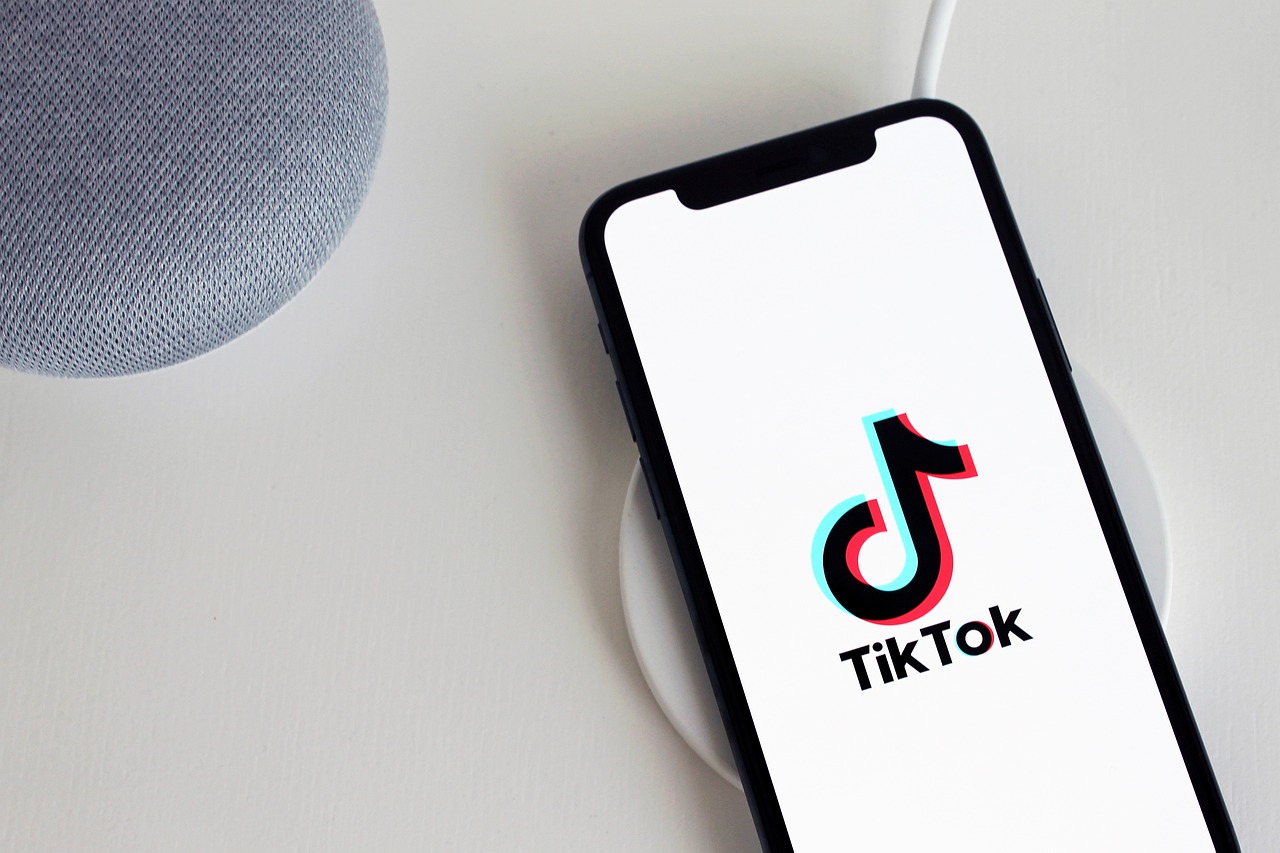
Phishing Scams
Phishing scams are like the digital wolves in sheep's clothing, lurking in the shadows of social media, ready to pounce on unsuspecting users. When you overshare personal information, you essentially hand these wolves a map to your vulnerabilities. Scammers are experts at crafting convincing messages that exploit the details you've shared online. For instance, if you've posted about your recent vacation, they might send you a message pretending to be your airline, asking you to confirm your flight details. This tactic preys on your trust and familiarity, making you more likely to fall for their trap.
What makes phishing so insidious is its ability to blend seamlessly into your daily online interactions. Scammers use information gleaned from your profiles, such as your name, where you live, or even your favorite hobbies, to create messages that feel personal and legitimate. It's almost like they are having a conversation with you, and you might not even realize it's a scam until it's too late. This is why being cautious about what you share is crucial. Always remember, the more you share, the easier it is for someone to impersonate a trusted source.
To illustrate the various forms phishing scams can take, consider the following types:
- Email Phishing: Fraudulent emails that mimic legitimate organizations.
- SMS Phishing (Smishing): Text messages that trick you into revealing personal information.
- Social Media Phishing: Fake profiles or messages that aim to extract sensitive data.
Recognizing these scams is the first step towards protecting yourself. If you receive a message that seems off, take a moment to verify its authenticity. Don't click on links or provide personal information unless you're absolutely sure of the source. Scammers are counting on your impulse to respond quickly; don’t give them that satisfaction.
In the end, staying vigilant and cautious about what you share online can significantly reduce your risk of falling victim to phishing scams. Remember, when in doubt, it's always better to err on the side of caution. By safeguarding your personal information, you not only protect yourself but also contribute to a safer online community for everyone.

Recognizing Phishing Attempts
In today's digital landscape, phishing attempts have become increasingly sophisticated, making it essential for users to be vigilant. Recognizing these scams can save you from potential financial loss and identity theft. But how do you spot a phishing attempt? First and foremost, be wary of unsolicited messages that ask for personal information or direct you to click on links. These messages often create a sense of urgency, making you feel like you must act quickly. For instance, you might receive an email claiming that your bank account has been compromised, urging you to verify your details immediately.
Another red flag is poor grammar and spelling. Many phishing emails originate from non-native speakers, leading to awkward phrasing or typos. If a message looks unprofessional, it’s likely a scam. Additionally, check the sender's email address carefully. Phishers often use addresses that closely resemble legitimate ones but may have slight variations, such as additional characters or misspellings.
Moreover, be cautious of links within messages. Hover your mouse over any link (without clicking) to see the actual URL. If it doesn’t match the official website of the company it claims to represent, don't click it! Some phishing attempts even use malicious attachments that can install malware on your device. Always think twice before downloading anything from unknown sources.
To help you further, here’s a quick checklist of warning signs to recognize phishing attempts:
- Unsolicited requests for sensitive information
- Urgent language that pressures you to act quickly
- Poor spelling and grammar
- Suspicious email addresses that mimic legitimate ones
- Links that lead to unfamiliar or unrelated websites
- Attachments from unknown senders
By keeping these factors in mind, you can better protect yourself from falling victim to phishing scams. Always remember, if something feels off or too good to be true, it probably is. Trust your instincts and take the time to verify before taking action.
Q: What should I do if I suspect a phishing attempt?
A: If you suspect you've received a phishing email, do not click any links or provide any information. Report it to your email provider and delete the message. If you believe your personal information has been compromised, contact the relevant organizations immediately.
Q: Are phishing attempts only found in emails?
A: No, phishing attempts can occur through various channels, including social media, text messages (SMS phishing), and even phone calls (vishing). Always be cautious when sharing personal information, regardless of the platform.
Q: Can I prevent phishing attempts?
A: While you can't completely eliminate phishing attempts, you can reduce the risk by using strong passwords, enabling two-factor authentication, and staying informed about the latest scams. Regularly updating your software and using security tools can also help protect your information.
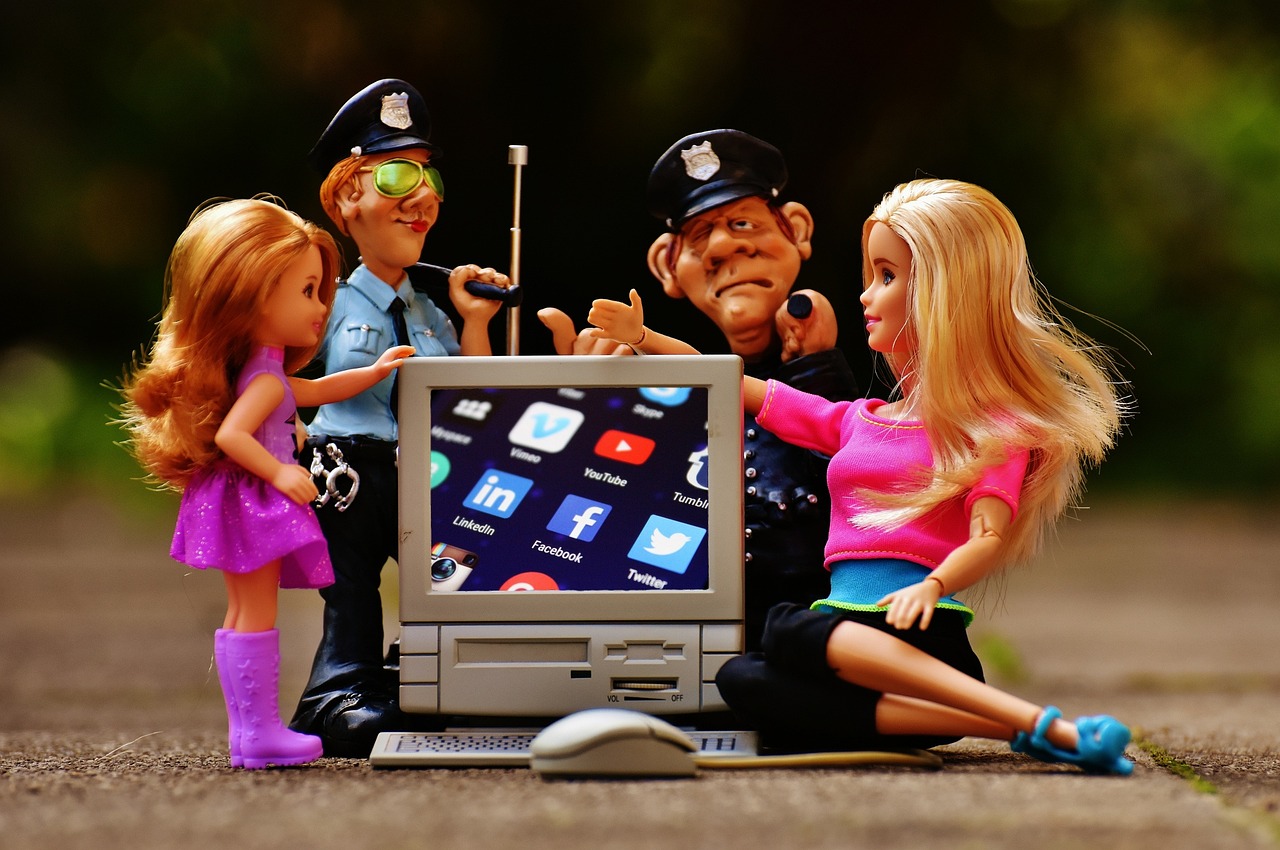
Reporting Scams
When you encounter a phishing scam or any suspicious activity on social media, it’s crucial to act swiftly. Reporting these scams not only helps protect your own online safety but also aids in safeguarding others from falling victim to similar traps. So, how do you go about this? First and foremost, each social media platform has its own set of procedures for reporting scams. Familiarizing yourself with these processes can make a significant difference in how quickly the issue is addressed.
For instance, if you receive a suspicious message on Facebook, you can report it directly by clicking on the three dots in the corner of the message and selecting "Report." On Instagram, you can tap on the message, select "Report," and follow the prompts. It's simple, right? But don't just stop there—after reporting, consider sharing your experience with friends or family, as they might also be at risk.
Moreover, it’s important to keep a record of the scam. Take screenshots of the suspicious messages or posts, as this documentation can be invaluable when reporting to authorities or even law enforcement. You might wonder, “What if the scammer is persistent?” In that case, blocking the user is also a wise move. This prevents any further contact and minimizes your exposure to potential threats.
Here’s a quick overview of the steps you can take to report a scam:
- Identify the Scam: Determine if the message or post is genuinely suspicious.
- Document Everything: Take screenshots and save relevant information.
- Report it: Use the reporting feature on the social media platform.
- Inform Others: Warn friends and family about the scam.
- Follow Up: Check back to see if the platform has taken action.
Lastly, don’t hesitate to reach out to your local authorities if you believe you’ve been targeted or if the scam is particularly severe. They can provide guidance and may take further action. Remember, being proactive not only protects you but also helps create a safer online community for everyone. So, the next time you spot a scam, don’t just scroll past it—take action!
Q: What should I do if I accidentally shared personal information with a scammer?
A: If you’ve shared personal information, immediately change your passwords and monitor your accounts for unusual activity. Consider placing fraud alerts on your credit report as a precaution.
Q: Can I report a scam that happened on a different platform?
A: Yes! You can report the scam to the platform where it occurred and also to local authorities if you feel threatened.
Q: How can I educate my friends and family about the risks of oversharing?
A: Share articles, host discussions, or even create a group chat to inform them about the dangers of oversharing and how to recognize scams.
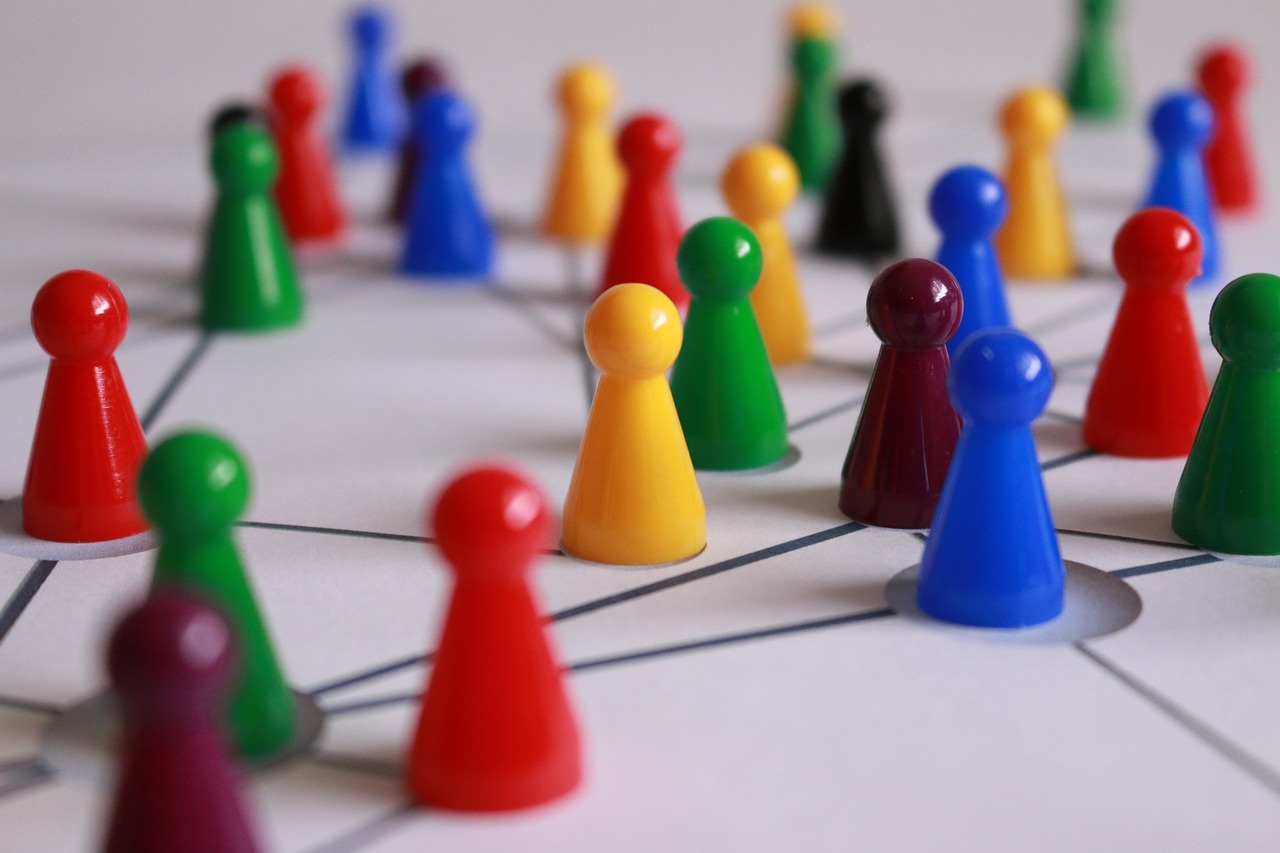
Social Engineering
When we think about , it’s easy to picture a shadowy hacker in a dimly lit room, but the reality is much more complex and insidious. Social engineering is a manipulation technique that exploits human psychology rather than technical hacking methods. It’s like a magician performing a trick; the magician distracts you with one hand while the other hand is doing something entirely different. In the context of oversharing on social media, this distraction can lead to significant risks. When individuals post personal information such as their location, family details, or even their daily routines, they inadvertently provide a treasure trove of data for potential scammers.
Consider this: every time you share a photo of your vacation, you’re not just sharing your joy; you’re also telling potential thieves that your home is empty. This is where the danger lies. Social engineers can use the information gleaned from your posts to craft convincing narratives that make you an easy target. For instance, if you frequently post about your favorite coffee shop, a scammer might pose as a barista, reaching out to you with a message that seems innocuous but is designed to extract personal information. The more you share, the more they can manipulate your trust.
Moreover, social engineering tactics often involve pretexting, where the scammer creates a fabricated scenario to steal your information. Imagine receiving a message from someone claiming to be your bank, asking for your account details to resolve a supposed issue. If you’ve shared your banking habits or even your bank’s name on social media, you’ve already given them half the information they need to pull off their scam. This highlights the importance of being mindful about what we post and how it can be misused.
To illustrate how social engineering works, here’s a simple table showing common tactics used by social engineers:
| Tactic | Description |
|---|---|
| Pretexting | Creating a fabricated scenario to obtain personal information. |
| Phishing | Sending fraudulent messages to trick individuals into revealing sensitive data. |
| Baiting | Offering something enticing to lure victims into providing personal information. |
In conclusion, social engineering is a potent reminder of the risks associated with oversharing on social media. It’s essential to think before you post, as even seemingly harmless information can be the key that unlocks your personal data to malicious actors. Protecting yourself involves not only being cautious about what you share but also staying informed about the tactics that scammers employ. Remember, in the world of social media, less is often more.
- What is social engineering? Social engineering is a manipulation technique that exploits human psychology to gain confidential information.
- How can I protect myself from social engineering attacks? Be cautious about what personal information you share online and verify the identity of anyone requesting sensitive data.
- What should I do if I suspect I've been targeted by social engineering? Report the incident to the relevant authorities and change your passwords immediately.

Cyberbullying Risks
In today's digital age, the phenomenon of cyberbullying has become alarmingly prevalent, and it often stems from the act of oversharing on social media platforms. When individuals post personal information, they inadvertently create a roadmap for bullies to exploit. Imagine sharing your daily routines, your favorite hangout spots, or even your vulnerabilities—these details can be weaponized against you. Cyberbullies thrive on the personal insights you reveal, using them to craft hurtful messages or to isolate you in online spaces.
The emotional fallout from cyberbullying can be devastating. Victims may experience feelings of loneliness, anxiety, and depression as a result of the negative attention they receive. Studies show that the impact of cyberbullying can be just as harmful, if not more so, than traditional forms of bullying. The permanence of online posts means that once something is shared, it can be difficult to erase, leading to a lingering sense of vulnerability. This is why it's crucial to recognize the risks associated with oversharing—what seems like a harmless post could lead to severe consequences.
Moreover, the anonymity that social media provides can embolden bullies, making them feel untouchable. They can hide behind screens and create fake profiles, allowing them to launch attacks without facing any repercussions. This anonymity can make it challenging for victims to identify their aggressors, leading to a sense of helplessness. In this context, oversharing not only exposes personal information but also makes individuals easy targets for relentless harassment.
To illustrate the risks further, consider the following scenarios:
- A teenager shares their location and plans for the weekend, only to find themselves targeted by classmates who mock them online.
- An adult posts a vulnerable status about their mental health struggles, leading to a wave of negative comments and ridicule from acquaintances.
- A professional shares too much about their workplace frustrations, which can be screenshot and shared, damaging their reputation.
Each of these examples highlights how oversharing can create an open invitation for bullies to invade your personal space and mental well-being. It’s essential to think twice before posting, considering whether the information could be misused. Protecting your privacy is not just about limiting who can see your posts; it's also about safeguarding your mental health.
In conclusion, the risks of cyberbullying stemming from oversharing are real and significant. By understanding the potential dangers and taking steps to protect your personal information, you can create a safer online environment for yourself and others. Remember, the internet is a powerful tool, but it can also be a double-edged sword. Choose wisely what you share, and always prioritize your well-being.
- What is cyberbullying? Cyberbullying is the act of harassing, threatening, or humiliating someone through digital platforms, often using personal information shared online.
- How can I recognize if I am being cyberbullied? Signs include receiving hurtful messages, being excluded from online groups, or noticing a sudden change in your online interactions.
- What should I do if I am a victim of cyberbullying? Document the incidents, block the bully, and report the behavior to the platform. It's also important to seek support from friends or professionals.
- How can I protect myself from cyberbullying? Be cautious about what you share online, adjust your privacy settings, and consider making your profiles private.
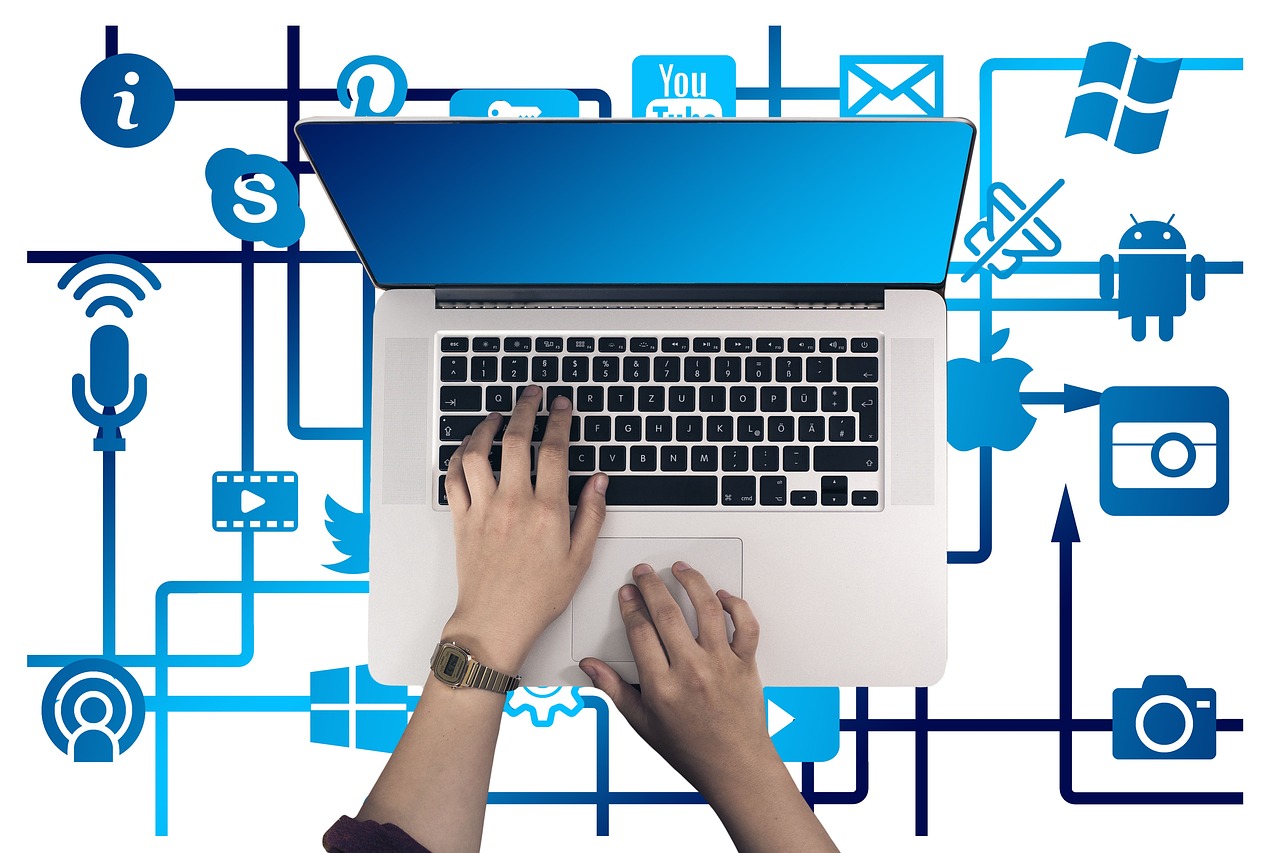
Impact on Mental Health
In today's digital age, where social media is an integral part of our lives, the act of oversharing can have profound implications on our mental health. Imagine walking through a crowded room, and every personal thought, feeling, and experience you have is being broadcasted for all to see. It can feel liberating at first, but what happens when that openness is met with judgment or ridicule? The emotional fallout can be significant.
When individuals overshare, they often expose themselves to unwanted scrutiny and criticism. This can lead to feelings of anxiety and depression. For many, the constant comparison to others’ seemingly perfect lives can create a distorted view of reality. The pressure to maintain a curated online persona can be overwhelming, leading to a cycle of stress and low self-esteem.
Moreover, the nature of social media can amplify feelings of isolation. Despite being more connected than ever, oversharing can paradoxically lead to feelings of loneliness. When personal information is weaponized by others, it can create an environment of fear and distrust. Victims of cyberbullying, often stemming from oversharing, may withdraw from social situations, exacerbating feelings of isolation.
It's essential to recognize the signs that oversharing may be affecting your mental health. Here are a few indicators that might suggest you’re feeling the emotional toll:
- Increased anxiety about what to post or how others perceive your posts.
- Feelings of sadness or anger when receiving negative comments.
- A tendency to compare your life with others based on their social media presence.
- Withdrawal from real-life interactions due to fear of judgment.
To combat these potential impacts, it’s crucial to set boundaries around what you share online. Think of your personal information as a treasure; would you leave your treasures out in the open for anyone to take? Establishing privacy settings, curating your audience, and being mindful of the content you share can help protect your mental well-being.
Additionally, seeking support from friends or mental health professionals can provide a safe space to discuss feelings stemming from social media interactions. Remember, you are not alone in this digital landscape, and it's okay to take a step back when needed. Emphasizing self-care and engaging in offline activities can help restore balance and improve mental health.
In conclusion, while social media can be a powerful tool for connection, it’s essential to navigate it thoughtfully. Oversharing can lead to significant mental health challenges, but with awareness and proactive measures, individuals can protect their emotional well-being in the digital world.
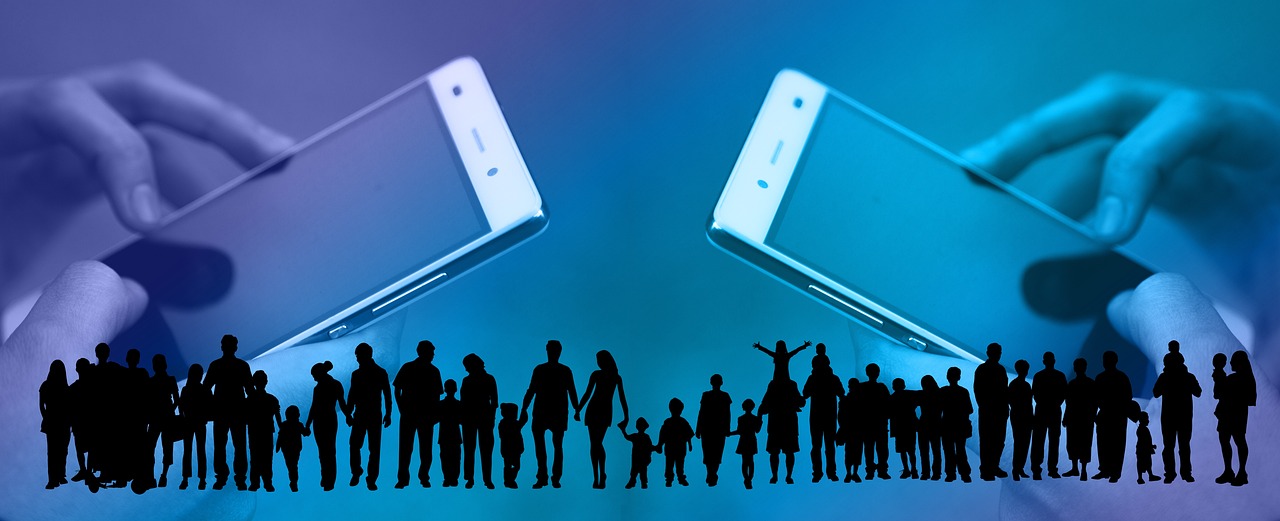
Preventive Measures
In a world where social media is intertwined with our daily lives, it’s imperative to take to safeguard our personal information. The first step in protecting yourself is to review your privacy settings on all social media platforms. Most platforms provide options to limit who can see your posts, send you friend requests, and even view your profile. By adjusting these settings, you can create a barrier that minimizes the risk of oversharing.
Another effective strategy is to think before you post. Ask yourself, “Would I be comfortable sharing this information with a stranger?” If the answer is no, then it’s best to keep it private. Additionally, consider the long-term implications of your posts. A photo or status update that seems harmless today could have repercussions in the future, especially when it comes to job opportunities or personal relationships.
Furthermore, it’s essential to educate yourself about the types of information that can be exploited. Personal details such as your full name, address, phone number, and even your birthday can be used by malicious actors to compromise your security. Be cautious about sharing these details, even in seemingly innocent contexts. For example, when participating in online quizzes or games, avoid providing personal information that could be used against you.
Moreover, consider using two-factor authentication (2FA) wherever possible. This adds an extra layer of security to your accounts, making it significantly harder for unauthorized users to gain access. Even if someone manages to get your password, they won’t be able to log in without the second factor, usually a code sent to your phone. This simple step can be a game changer in protecting your online presence.
In addition to these measures, it's wise to regularly monitor your online presence. Conduct a search of your name to see what information is publicly available and take steps to remove anything that could be damaging. If you find posts or images that you would prefer to keep private, reach out to the individuals who posted them and request removal. Remember, control over your digital footprint is crucial.
Lastly, consider discussing online safety with your friends and family. Sharing knowledge about the risks of oversharing and the importance of privacy can create a more informed community. When everyone is on the same page, it becomes easier to protect one another from potential dangers.
- What is oversharing on social media? Oversharing refers to the act of disclosing too much personal information on social media platforms, which can lead to privacy breaches and security risks.
- How can I adjust my privacy settings? You can usually find privacy settings in the account settings or security section of your social media profile. Look for options that control who can see your posts and personal information.
- What should I do if I suspect identity theft? If you suspect identity theft, immediately change your passwords, enable two-factor authentication, and report the incident to your bank and local authorities.
- Can I recover deleted posts or information? Once a post is deleted, it may not be recoverable. However, you can review your account activity to see if there are any backups or cached versions.
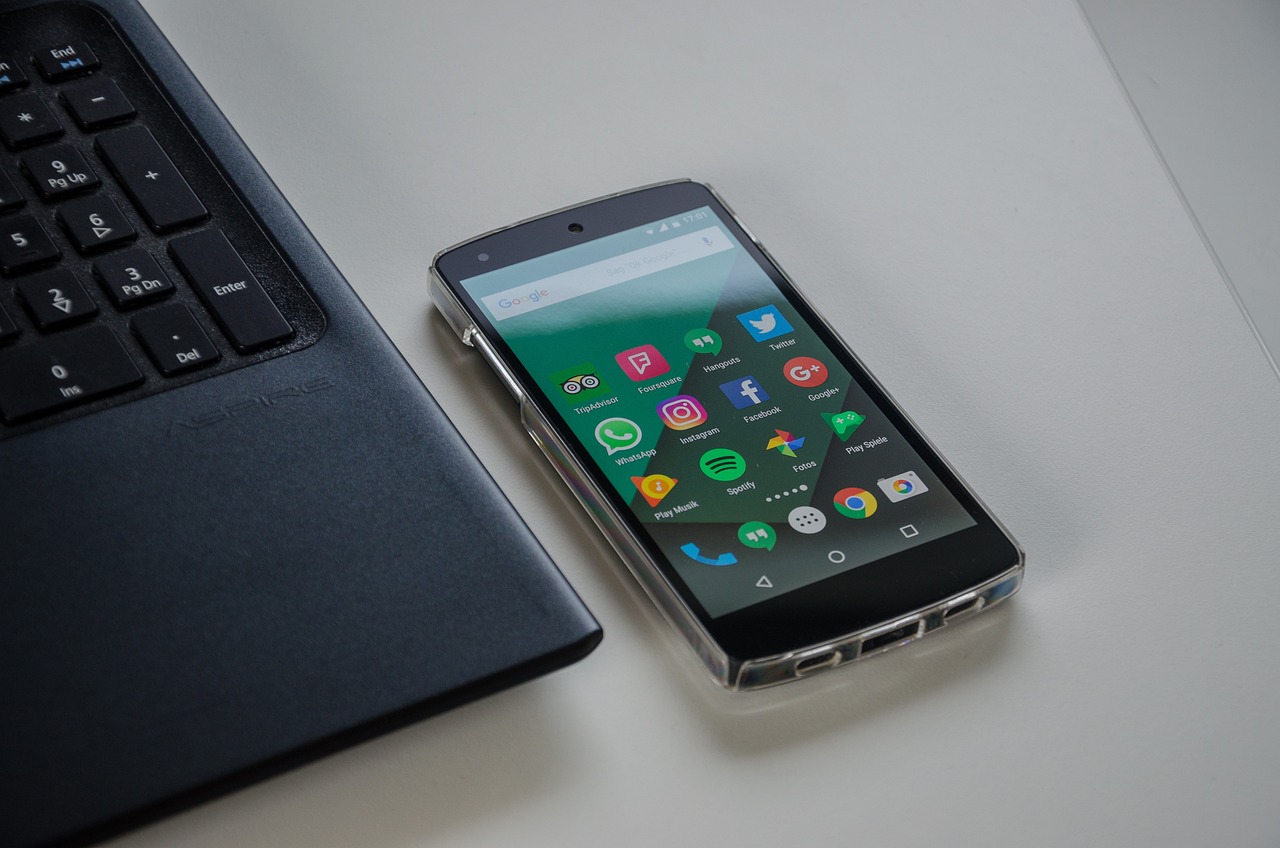
Reputation Damage
In today's digital age, where everything is just a click away, oversharing on social media can have dire consequences, especially when it comes to your personal and professional reputation. Imagine walking into a room full of people, and instead of introducing yourself, you spill every embarrassing detail of your life. That’s essentially what oversharing does online—it exposes your vulnerabilities and invites judgment from others. The moment you post something personal, it’s no longer just yours; it becomes fodder for gossip, scrutiny, and sometimes even ridicule.
When you share too much, you risk creating a narrative that others can manipulate. For example, a simple post about a bad day at work can be twisted into a story about your incompetence. Potential employers, clients, or even friends might stumble upon that post and form a negative impression of you without knowing the whole story. This is particularly concerning in professional settings, where a single misstep can lead to lost opportunities.
Consider the following scenarios that illustrate how oversharing can lead to reputation damage:
- Job Opportunities: Employers often check social media profiles before making hiring decisions. A post that seems innocent to you might raise red flags for them.
- Personal Relationships: Sharing too much about personal conflicts can alienate friends and family, as they may feel uncomfortable or judged by your public disclosures.
- Public Perception: In the age of cancel culture, a poorly thought-out post can quickly escalate into a public relations nightmare, leading to backlash and loss of support.
Furthermore, the permanence of the internet means that even if you delete a post, it can still exist in screenshots or archives. This lingering presence can haunt you for years, affecting everything from your job prospects to your social life. The digital footprint you create is like a shadow that follows you, and it’s often much harder to erase than it is to create.
To illustrate the impact of oversharing, let’s look at a few high-profile cases:
| Individual | Incident | Outcome |
|---|---|---|
| Public Figure A | Posted personal grievances about a colleague | Lost job and faced public backlash |
| Influencer B | Shared controversial opinions on social issues | Lost sponsorships and followers |
| Employee C | Posted negative comments about the company | Fired and struggled to find new employment |
In conclusion, the stakes are high when it comes to oversharing on social media. It’s crucial to think before you post and consider how your words might reflect on your character and reputation. Remember, once something is online, it can be nearly impossible to take it back. Protecting your reputation is not just about being careful with what you share; it’s about being mindful of how it could be perceived by others.
Q: How can I protect my reputation on social media?
A: Be cautious about what you share. Think about the potential impact of your posts and consider adjusting your privacy settings to limit who can see your content.
Q: What should I do if I’ve overshared and it’s affecting my reputation?
A: Consider deleting the post and apologizing if necessary. You can also reach out to those affected directly to clarify any misunderstandings.
Q: Can I recover from reputation damage caused by oversharing?
A: Yes, while it may take time, you can rebuild your reputation by demonstrating positive behavior and sharing constructive content moving forward.
Frequently Asked Questions
- What is oversharing on social media?
Oversharing refers to the act of posting too much personal information on social media platforms, which can include anything from intimate details about your life to sensitive data like your location or contact information. It's like leaving your front door wide open, inviting unwanted guests into your personal space!
- How can oversharing affect my privacy?
When you overshare, you compromise your privacy by allowing others access to your personal life. This can lead to privacy invasions where unauthorized individuals might exploit that information for malicious purposes, such as stalking or harassment. Think of it as giving away the keys to your home without realizing the potential risks!
- Can oversharing lead to identity theft?
Absolutely! Sharing personal details like your full name, birthdate, and even your pet's name can make you a target for identity theft. Scammers can piece together this information to impersonate you and commit fraud. It's like handing a thief a blueprint to your life!
- What are phishing scams, and how do they relate to oversharing?
Phishing scams are deceptive tactics used by scammers to trick you into revealing sensitive information, often by pretending to be a trustworthy source. When you overshare, it becomes easier for these scammers to tailor their messages to you, making their attempts more convincing. It's like giving them a cheat sheet to your vulnerabilities!
- How can I recognize phishing attempts?
Look out for suspicious emails or messages that create a sense of urgency, contain misspellings, or ask for personal information. If something feels off, trust your instincts! It's like a smoke alarm going off—don't ignore it!
- What should I do if I encounter a phishing scam?
If you spot a phishing scam, report it immediately to the social media platform or your email provider. This helps protect others from falling victim to the same trap. Think of it as sounding the alarm for your friends and family!
- How does oversharing contribute to cyberbullying?
Oversharing can make individuals more vulnerable to cyberbullying, as bullies may use the personal information you’ve shared against you. This can lead to severe emotional distress, making it crucial to be mindful of what you post online. Imagine giving someone ammunition to hurt you—it's best to keep that ammo locked away!
- What are some preventive measures against cyberbullying?
To protect yourself from cyberbullying, consider adjusting your privacy settings, being selective about what you share, and blocking or reporting bullies. It's all about creating a safe online environment for yourself, much like building a fortress around your castle!
- Can oversharing damage my reputation?
Yes, oversharing can lead to long-term damage to your reputation, both personally and professionally. Employers and acquaintances often check social media profiles, and careless posts can leave a lasting negative impression. It's like leaving a bad first impression that lingers long after the meeting!



















